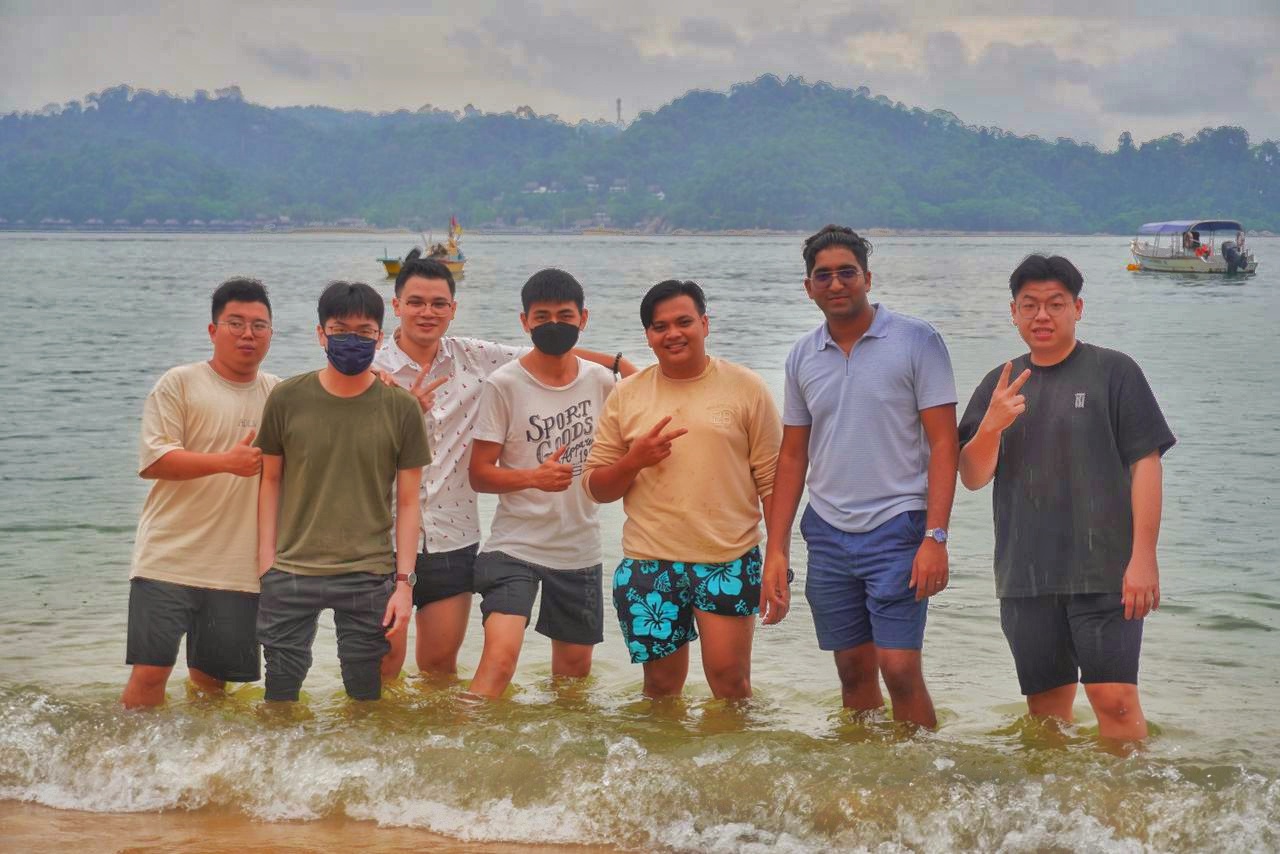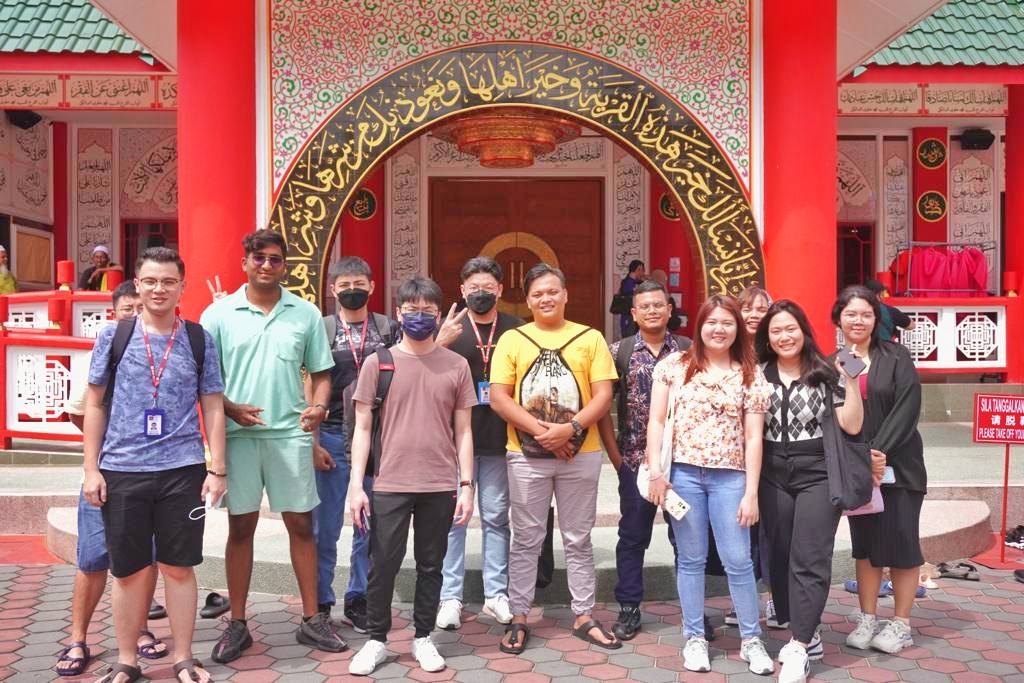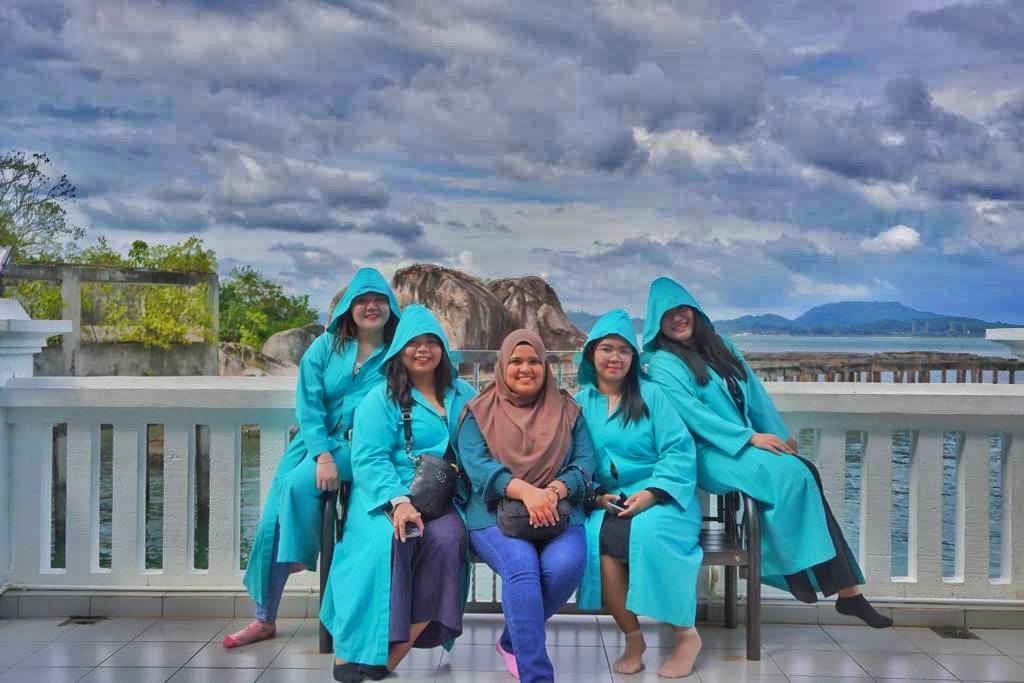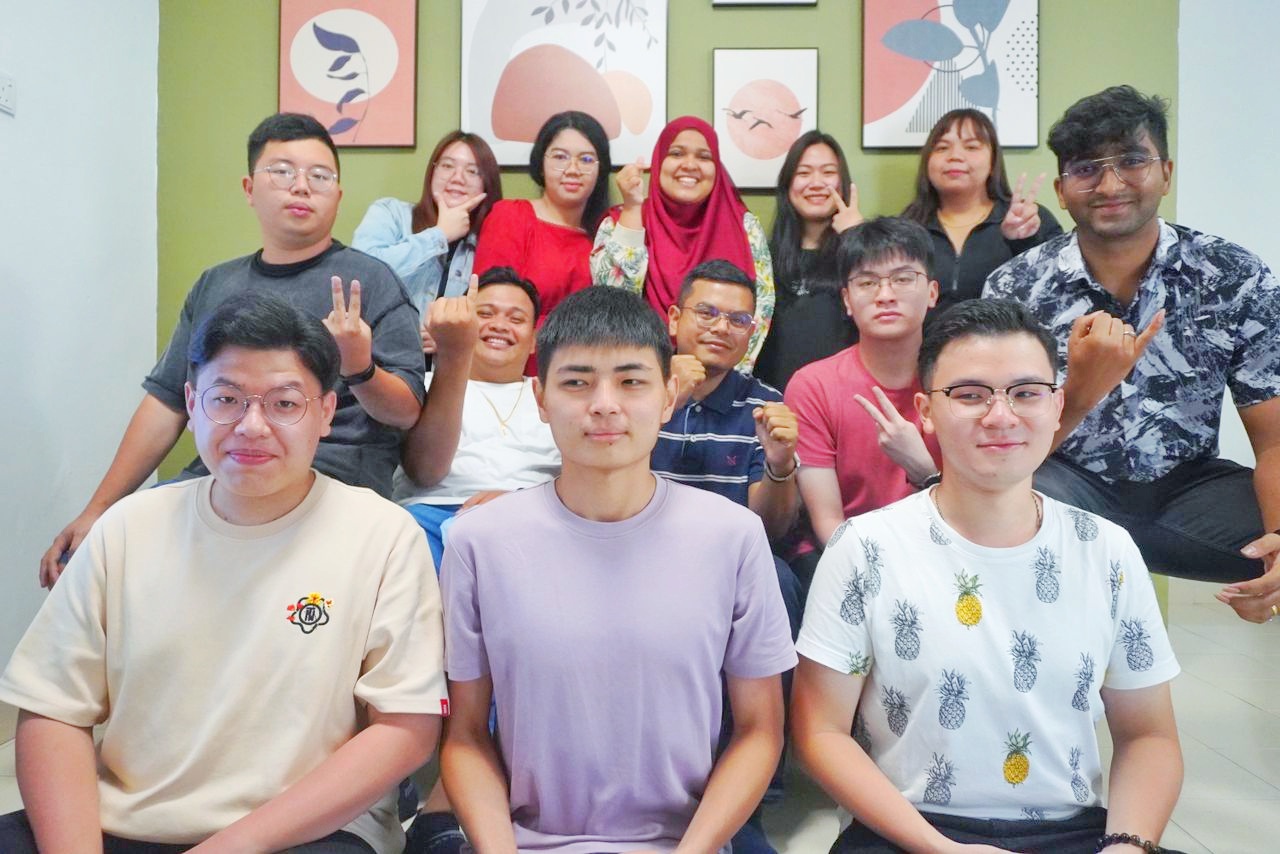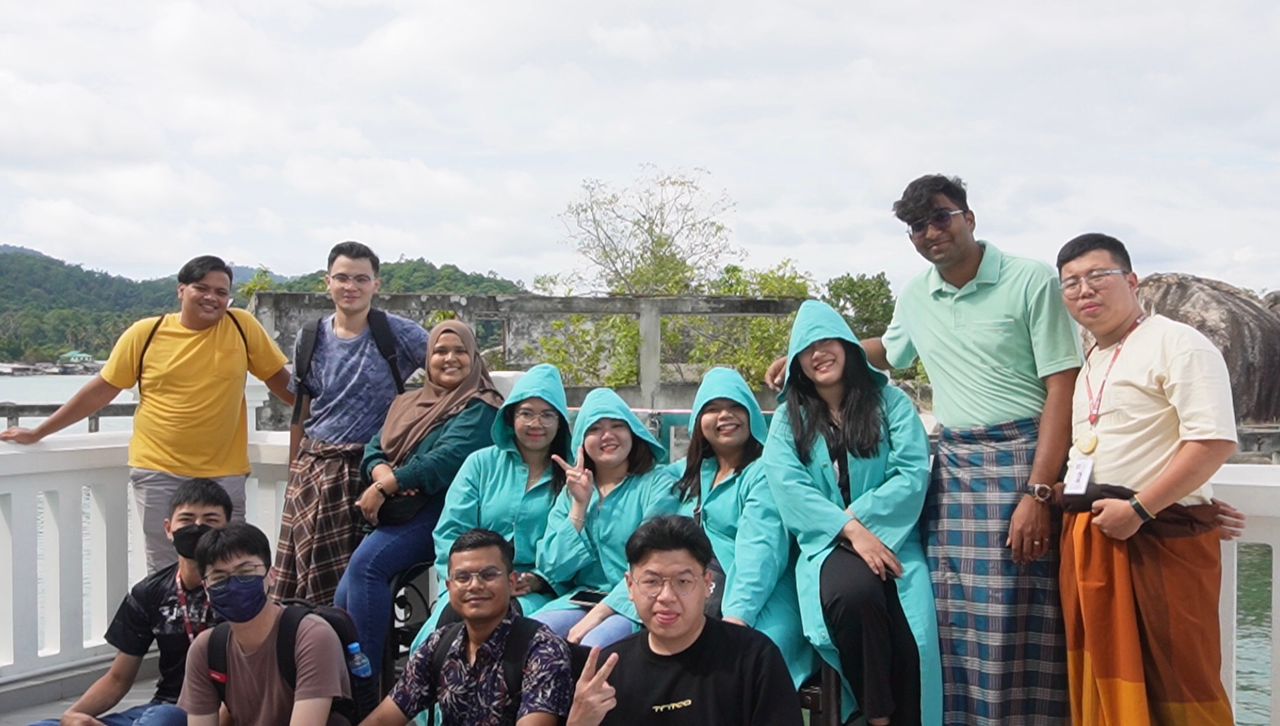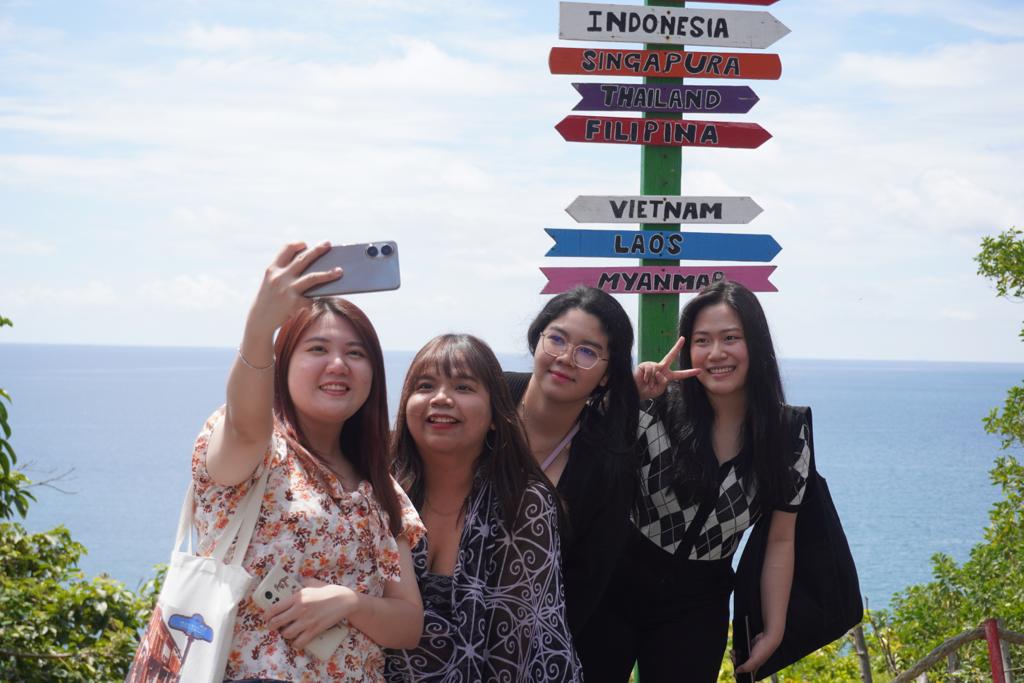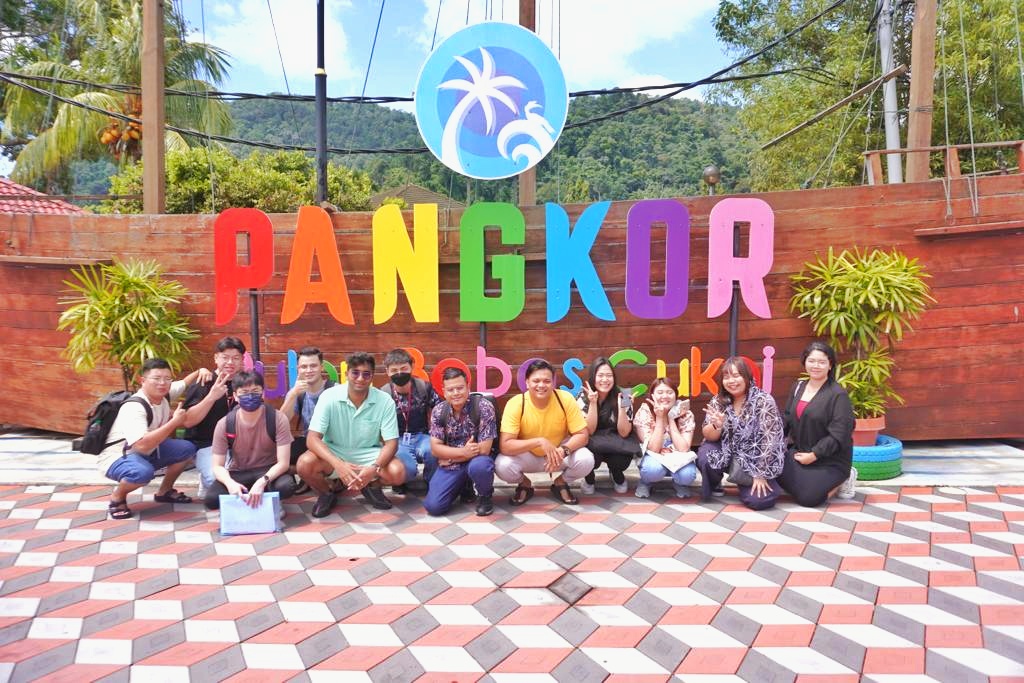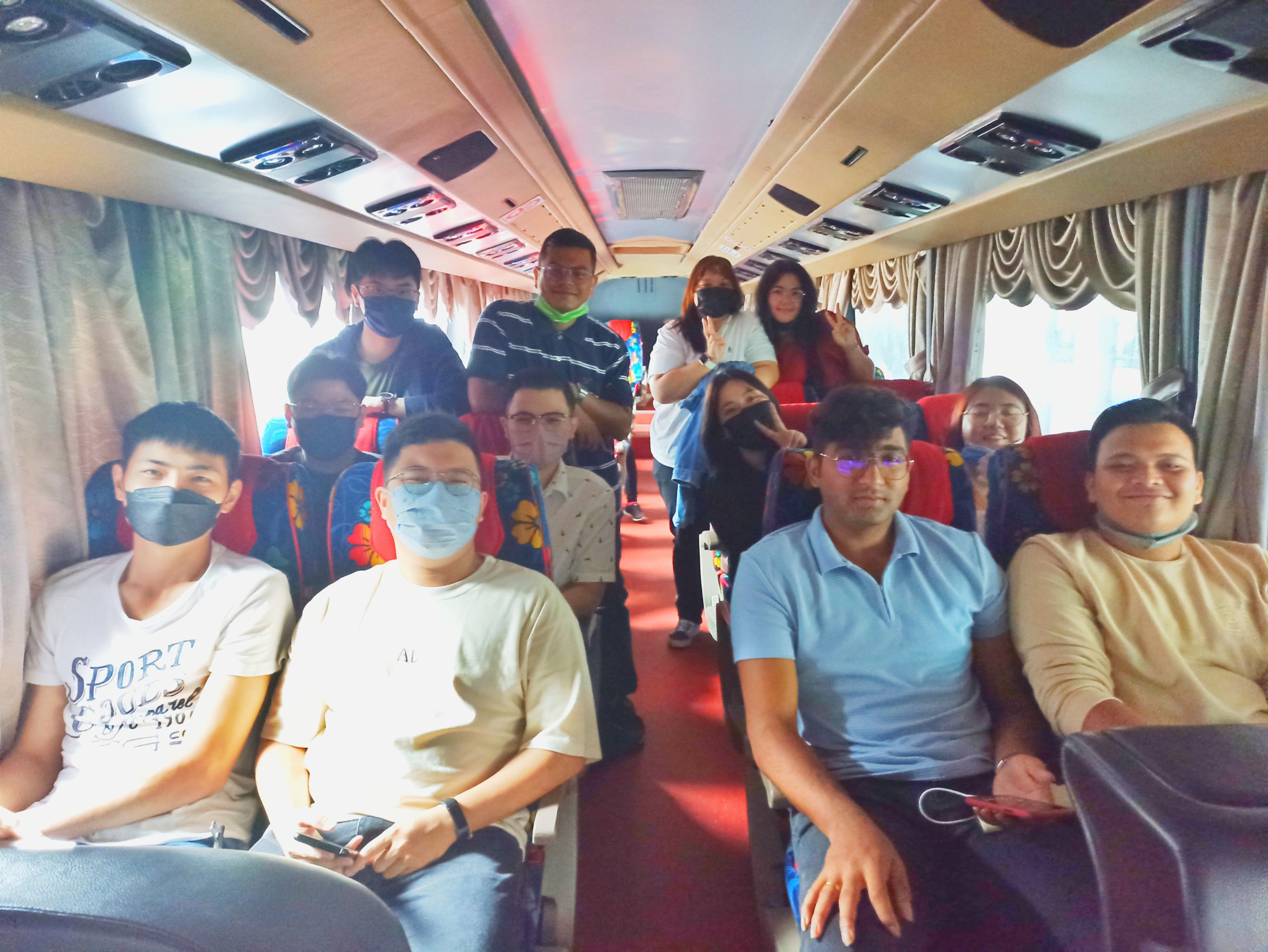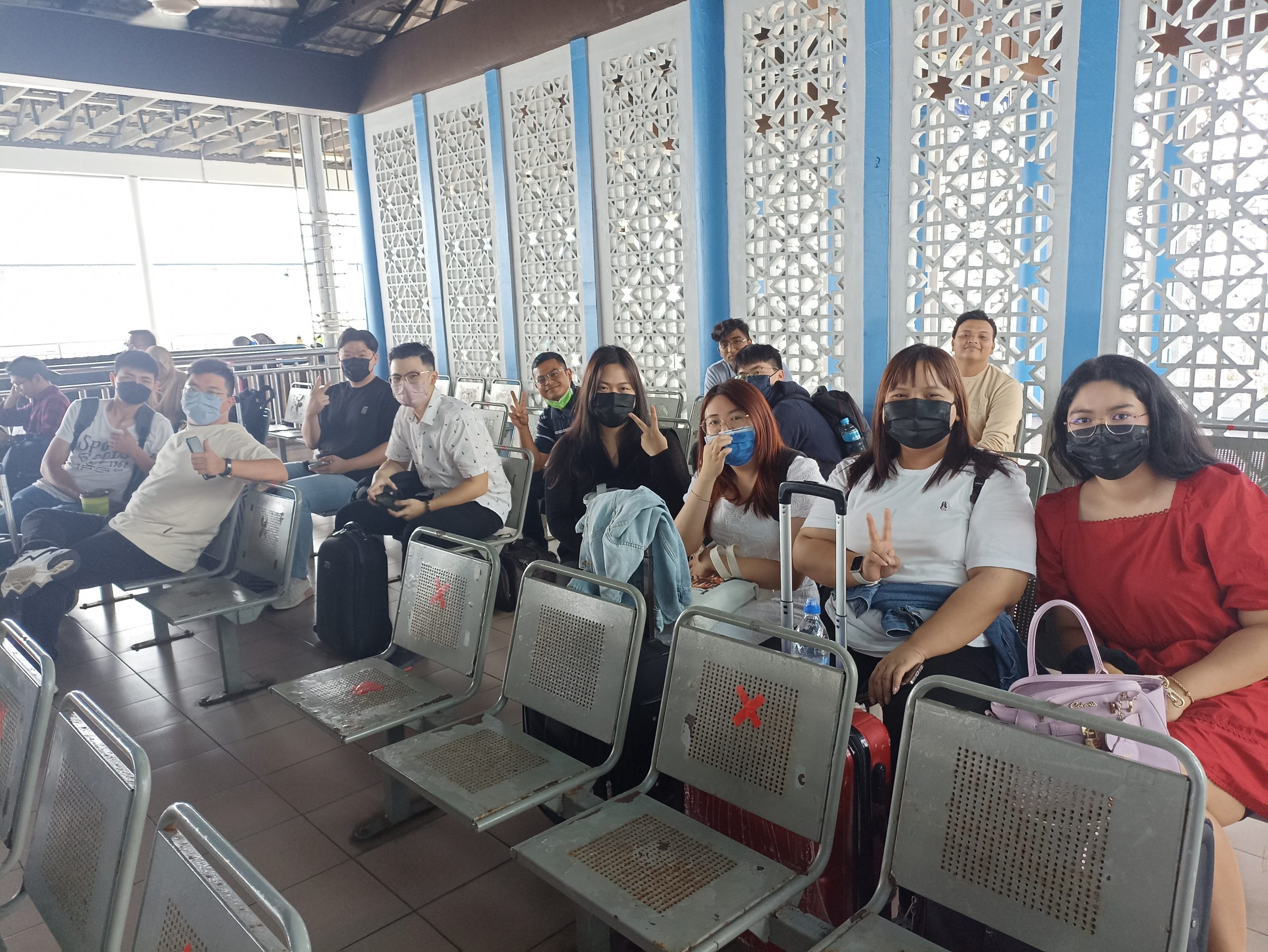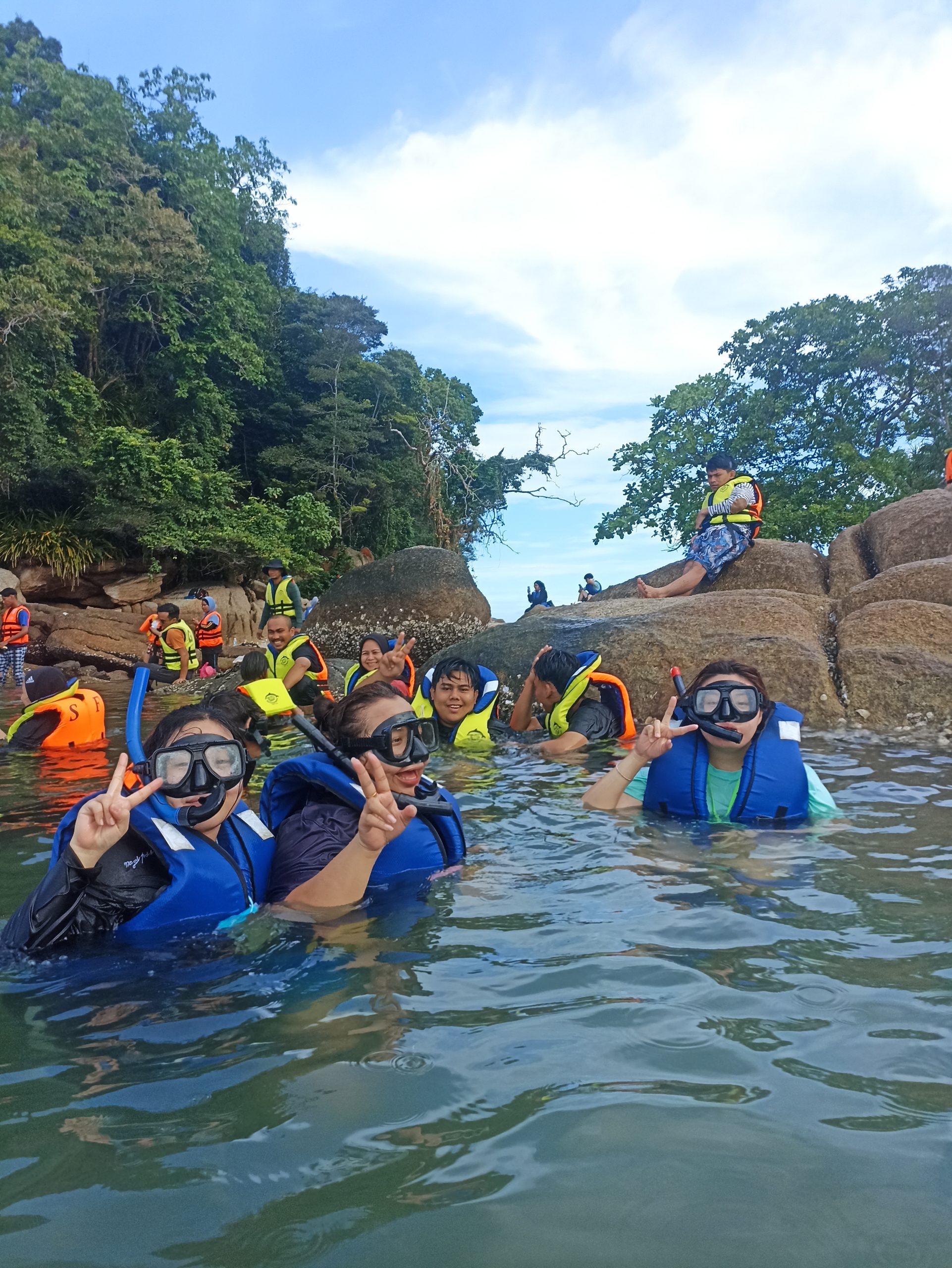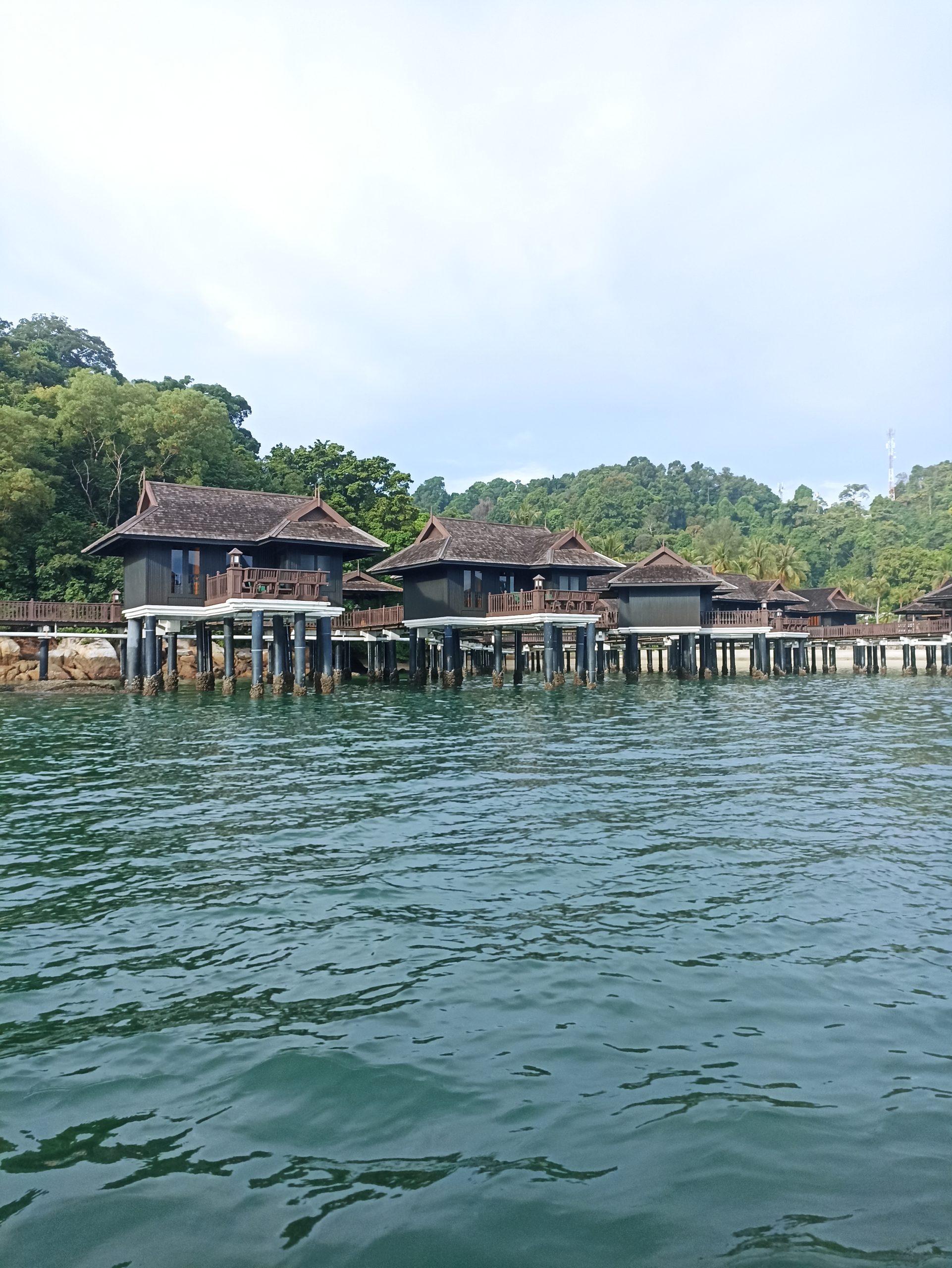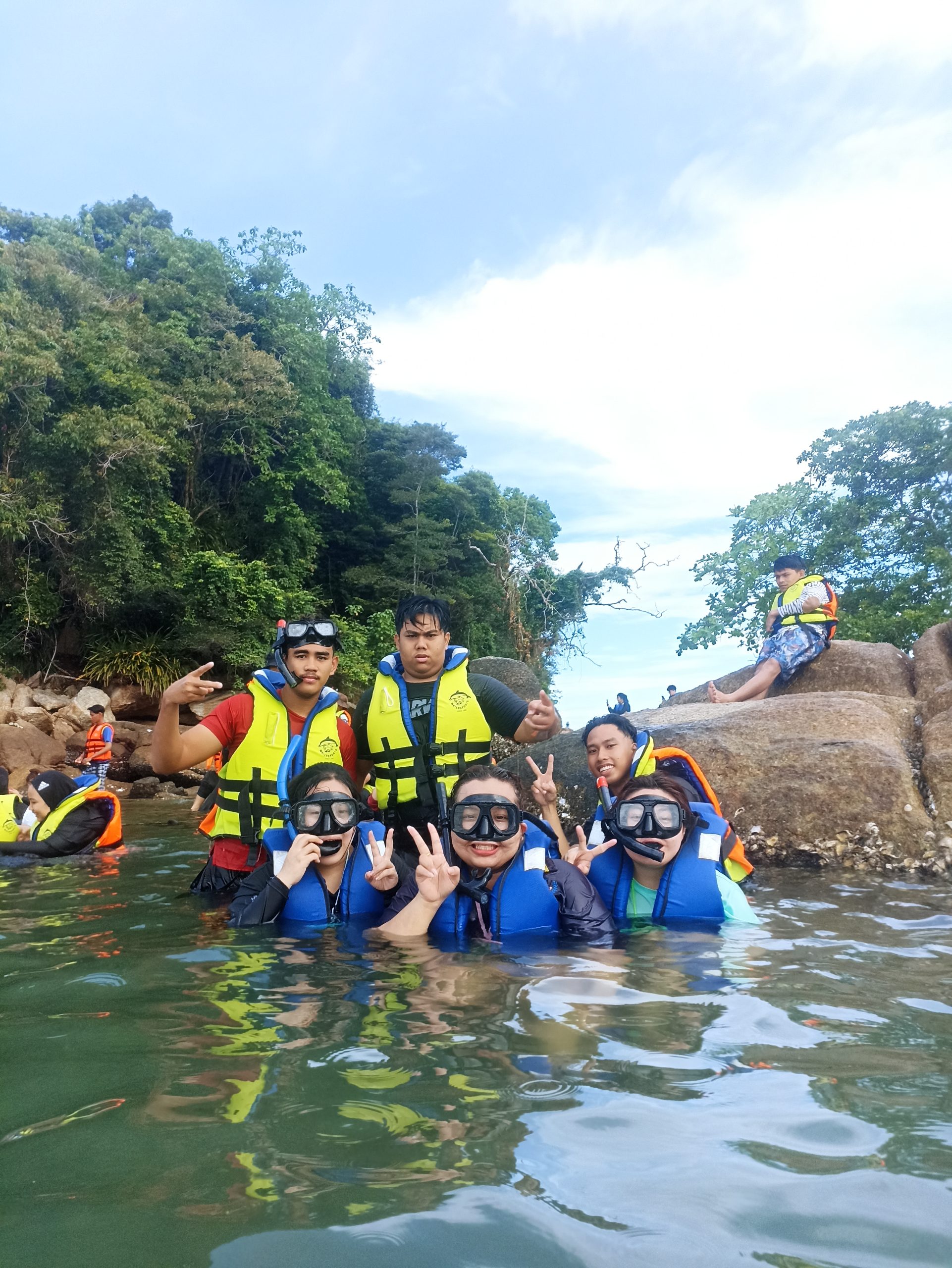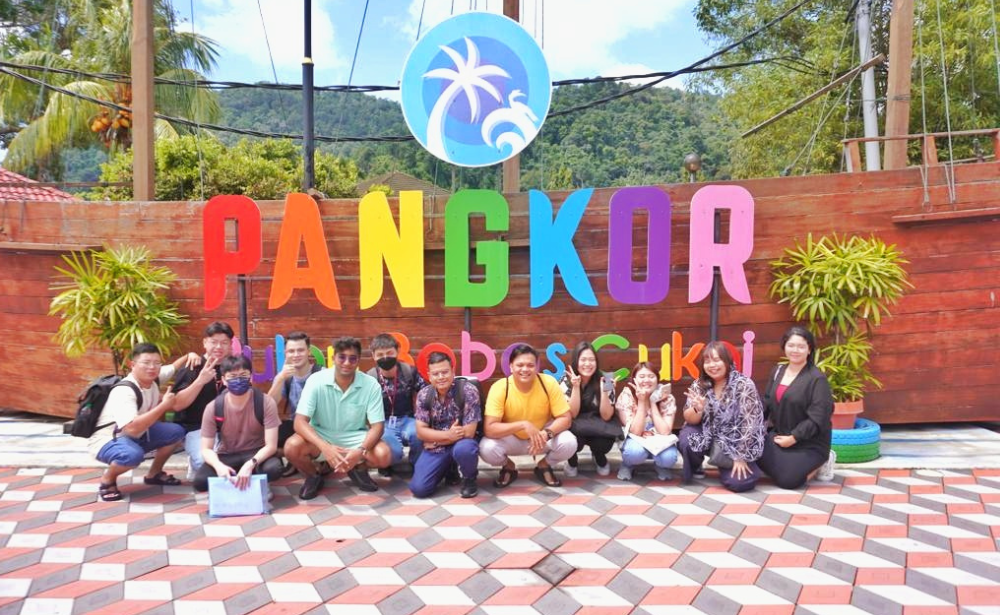Field trips have long been a popular educational tool for connecting students to concepts and theories taught in the classroom. According to Behrendt and Franklin (2014), fieldwork can lead to better learning outcomes than class-based learning. In accordance with this, students pursuing a BSc (Hons) International Tourism and Hospitality Management degree at a Malaysian college organised a field trip to Pangkor Island, Perak, to fulfil their assessment requirements for TLH214 Tourism Fieldwork.
Pangkor Island, located off the coast of Perak, is a Malaysian hidden gem ideal for student trips. With a population of around 30,000 people, the island is known for its beautiful beaches. The students spent the entire day soaking up the sun and enjoying water activities, which provided an excellent opportunity to learn about marine life and the importance of ocean preservation.
The trip began early in the morning, with students departing from Penang Sentral and travelling for about 3.5 hours to Lumut Terminal. After arriving, the students immersed themselves in the island’s rich history and culture by visiting historical sites such as the Dutch Fort, Masjid Seribu Doa, Masjid Seri Selawat, and the Fu Lin Kong Temple. These excursions provided insight into the island’s history and the various cultures that influenced its development.
Apart from its cultural and historical significance, Pangkor Island is also a duty-free zone where visitors can purchase a variety of goods such as alcohol, tobacco, perfumes, chocolates, and electronics. However, depending on the time of year and specific stores, the selection and availability of duty-free products may vary.
Exploring the island’s beaches was one of the highlights of the trip, with Pasir Bogak being one of the most popular. Tourists were enjoying various water sports activities such as jet skiing and parasailing on the beach, which was bustling with activity. The water was calm and ideal for swimming, and the beach was clean and well-kept.
The students went snorkelling and took a boat ride on the second day to explore the uniqueness of Pangkor Laut Resort and nearby islands. These activities provided students with an excellent opportunity to learn about marine life and the importance of ocean preservation.
The students had an unforgettable experience on Pangkor Island, which combined fun, adventure, and learning. It emphasised the significance of field trips as an educational tool that connects students to classroom concepts and allows for experiential learning. As the tourism and hospitality industries expand, such field trips can help students develop industry-relevant skills and knowledge.
The global travel and tourism industry is expected to create 100 million new jobs by 2028, according to a World Travel & Tourism Council (WTTC) report, with Asia leading the way. In 2019, the travel and tourism industry in Malaysia contributed significantly to the country’s economy, accounting for 14.9% of GDP and employing 3.4 million people (Tourism Malaysia, 2020). With such growth and job opportunities, field trips like the one to Pangkor Island can help students prepare for a career in the tourism and hospitality industry.
